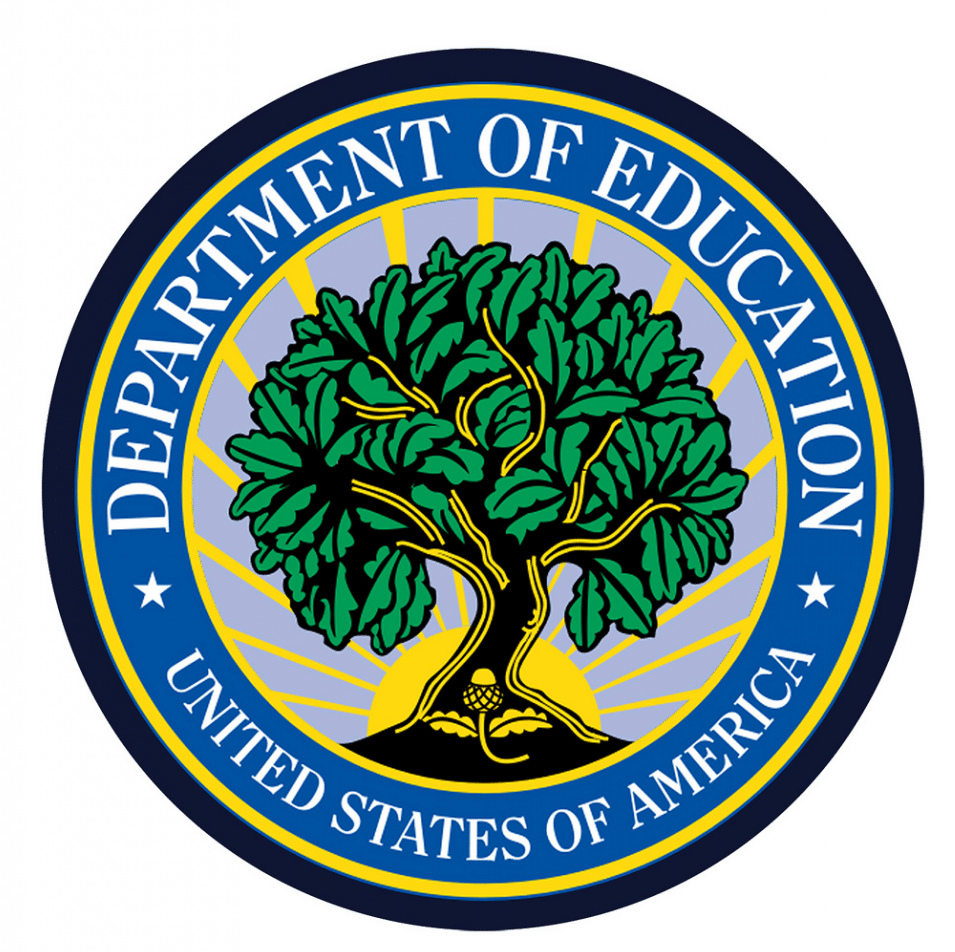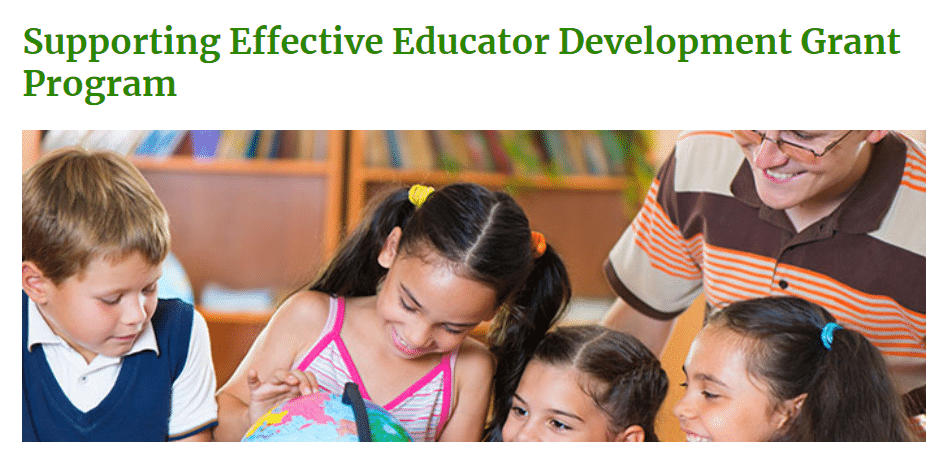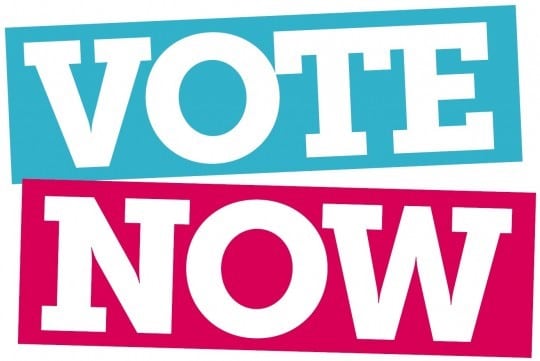28 May2020
By Deborah Koolbeck

The U.S. Department of Education (Department) released its Notice of Intent to Apply (NIA) for the Teacher Quality Partnership (TQP) Grant Program through the Federal Register. (Please note that the full details of the application are included in the NIA.) For Fiscal Year 2020, the TQP grant program received a $7 million dollar increase from the Congress, raising the program to a $50.1 million funding level. (Thank you to all who advocate with AACTE in support of this program and increasing its funding!)
The TQP program is the only federal initiative dedicated to strengthening and transforming educator preparation at institutions of higher education while meeting the workforce needs of partner high-need schools and school districts. Designed for either undergraduate or graduate programs, teacher candidates will be prepared to teach in high-need fields and serve in high-need schools. For the graduate level TQP programs, grantees develop teacher residency programs. Grantees are required to provide at least 2 years of induction for program graduates and provide professional development to faculty and staff at the schools where the graduates are teaching.
21 May2020
By Deborah Koolbeck
The U.S. Department of Education has released a call for peer reviewers for the Office of Elementary and Secondary Education, Effective Educator Development (EED) Division for upcoming Fiscal Year 2020 grant cycles. The following programs grant competitions are seeking reviewers:
- Teacher Quality Partnership Grant Program (TQP)
- Supporting Effective Educator Development (SEED)
- Teacher and School Leader Incentive Program (TSL)
The Department is looking for reviewers from various professions and background, preferably with education background and experience in various areas including (but not limited to) PK-12 teaching, preparing teachers, teacher residency programs, social and emotional learning, and preparing STEM teachers. Please see the Department’s 2020 Call for Peer Reviewers for all areas of experience and other requirements including availability, tools, and expected quality of review.
14 May2020
By Deborah Koolbeck

On May 6, 2020, the U.S Department of Education, under the leadership of Secretary Betsy DeVos, released the final rule for the Title IX regulations—also known as the final regulation. Built from the law that prohibits sexual discrimination at federally funded institutions, this update to the Code of Federal Regulations (CFR) has been contentious since the process started in November 2018. AACTE joined nearly 60 organizations on a letter led by the American Council on Education pointing out challenges and questions with the proposal during the public comment period in January 2019. Overall, the Department received over 124,000 public comments that were reviewed prior to the determination of the final rule.
The review and update of the regulations were initiated due to a response to guidance issued by the Obama Administration in 2011 leading to an increase in civil lawsuits, mostly from men who were accused of sexual misconduct alleging their rights were violated under the Title IX procedures. The updated regulations are purported to be fair to both the accuser and the accused.
17 Apr2020
By Deborah Koolbeck

On April 13, 2020, the U.S. Department of Education via the Federal Register announced that applications are available for the FY20 grant cycle of the Supporting Effective Educator Development (SEED) grant program. With the reauthorization of the Elementary and Secondary Education Act, this program was expanded to include institutions of higher education as participants in the program. The Department estimates that $22 million will be available for these 3-year grants.
The SEED grant program’s main goal is to increase the number of highly effective educators by supporting the implementation of evidence-based practices that prepare, develop, or enhance the skills of educators. This program is designed to encourage the use of rigorous evidence in selecting and implementing opportunities to support educator’s development across the continuum of their careers, including preparation, recruitment, evaluation, professional learning, and leadership development.
17 Apr2020
AACTE Responds to COVID-19
By Deborah Koolbeck

The CARES Act, signed into law on March 27, 2020, included nearly $14 billion to support higher education institutions and students. This funding included $6.28 billion to provide cash grants to students for expenses related to disruptions to their education due to COVID-19. The funds move from the U.S. Department of Education to the institutions of higher education, and the institutions disperse the funds to students.
The allocation to each institution is set by a formula established in the CARES Act, weighted by the number of full-time students with Pell grants but also considers the total population of the school and the number of students who were not enrolled full-time in online programs pre-COVID-19. (View the methodology. It is important to note that this initial disbursement is for 50% of what is in the allocation table.) The institution must fill out a Certificate of Agreement with the Department to receive the disbursement via grants.gov. U.S. Secretary of Education Betsy DeVos wrote a letter to college and university presidents sharing guidance on this disbursement.
07 Apr2020
By Deborah Koolbeck
As the COVID-19 pandemic led the U.S. president to declare a national emergency, education stakeholders began immediate, direct advocacy with the Congress and the Administration, and will continue as federal and congressional actions to address the COVID pandemic unfold. AACTE continues to advocate for educator preparation on Fiscal Year 2021 funding, in particular, and emergency spending packages (often referred to as supplemental measures/bills) with both legislative branches.
When AACTE staff and members talk about advocacy, we talk about the power in the combined voices of stakeholders and partners. To that end, AACTE has joined other education organizations in augmenting the voices on key issues as they emerge with the Administration and the Congress. You can access these letters via the AACTE COVID-19 Resource Hub located under AACTE Advocacy: Letters to Congress, the Administration, or other Leaders. Such letters include one that addresses the release of the Title IX regulations and rapid deployment of the funding from the third stimulus package, the CARES Act.
This section of the COVID-19 Resource Hub will be updated as AACTE signs on to letters for actions related to the COVID-19 pandemic
26 Mar2020
AACTE Responds to COVID-19
By Deborah Koolbeck
On March 25, 2020, the U.S. Senate passed the bipartisan third stimulus bill known as the Coronavirus Aid, Relief, and Economic Security Act, aka the CARES Act. The U.S. House of Representatives will take up the measure on March 27, sending it to the president for his signature. At this point in time, conversations are beginning on whether or not a fourth stimulus package is necessary.
Read the full CARES Act.
Read the Title-by Title Summary
The CARES Act includes the following in regard to education:
Funding
Education Stabilization Fund: This includes flexible funding that will get out the door quickly and go directly to states, local school districts, and institutions of higher education to help schools, students, teachers, and families with immediate needs related to the coronavirus, including:
23 Mar2020
AACTE Responds to COVID-19
By Deborah Koolbeck
As the United States responds to the COVID-19 pandemic, federal agencies connected to the education and care of our nation’s higher education and PK-12 students are releasing information and guidance for taking action, as well as flexibilities and waivers offered.
The U.S. Department of Education offered a phone call to K-12 stakeholder on Friday March 20, 2020, with officials from the Department, the CDC, and the U.S. Department of Agriculture. The Department has posted a readout of the call, with links to resources on servicing students with disabilities, student loan relief, student privacy, and more.
Main Links for COVID-19 Information
U.S. Department of Education
U.S. Department of Agriculture Food and Nutrition Service
Centers for Disease Control
12 Mar2020
AACTE Responds to COVID-19
By Deborah Koolbeck
The U.S. Department of Education (Department) released guidance on March 5 and followed up with additional outreach on March 11, 2020 to ensure that institutions of higher education (IHE) are aware of options for various interrupted study due to COVID-19, including what the Department refers to as “student teaching.” This is particularly important for compliance with Title IV of the Higher Education Act. The guidance covers five scenarios including the following:
“A student was enrolled in a program and met the requirements for full-time enrollment; however, due to the COVID-19, one or more classes—such as an internship, a clinical rotation, student teaching or fieldwork—have been cancelled and now the student has fallen below the 12 credit hour minimum and is no longer considered to be a full-time student …”
Please review the guidance offered and work with your institution’s leadership, including the financial aid office moving forward. Specific situations leading to additional questions should be directed to COVID-19@ed.gov.
Other resources
U.S. Department of Education COVID-19 Resources
CDC Interim Guidance for Administrators of US Institutions of Higher Education
CDC Coronavirus 2019 (COVID-19) Fact Sheet
11 Feb2020
By Deborah Koolbeck
 On Monday, February 10, 2020, the President kicked off the Fiscal Year 2021 (FY21) budget process by making his budget request to the Congress. Generally released on the first Monday in February, the delay reflects the delay in completing the FY20 appropriations process, which concluded on December 20, 2019. With a divided Congress, we should expect the Administration’s highest priorities to emerge as the heads of agencies and departments testify before the subcommittees of jurisdiction on the Appropriations committees later this spring. We will then learn the priorities of the Democratic Caucus leading the U.S. House of Representatives and those of the Republican Caucus leading the U.S. Senate, as subcommittee bills are released and marked up.
On Monday, February 10, 2020, the President kicked off the Fiscal Year 2021 (FY21) budget process by making his budget request to the Congress. Generally released on the first Monday in February, the delay reflects the delay in completing the FY20 appropriations process, which concluded on December 20, 2019. With a divided Congress, we should expect the Administration’s highest priorities to emerge as the heads of agencies and departments testify before the subcommittees of jurisdiction on the Appropriations committees later this spring. We will then learn the priorities of the Democratic Caucus leading the U.S. House of Representatives and those of the Republican Caucus leading the U.S. Senate, as subcommittee bills are released and marked up.
For the U.S Department of Education (Department), the President’s Budget Request cut the agency’s funding by $6.1 billion, or 8.4% from Fiscal Year 2020 levels. The key initiatives in the President’s Budget Request include the following:
Education Freedom Scholarships
This program establishes a federal tax credit program for voluntary donations to state-designed scholarships for elementary and secondary students offered by state-identified 501c3 non-profit entities. While these scholarships have been proposed before, this FY21 request includes and expansion of the opportunities for students and families.
04 Feb2020
By Deborah Koolbeck
Did you miss the AACTE member exclusive January 2020 Federal Update Webinar? Not to worry. It is posted online on the AACTE Advocacy Center federal page, ready for you to watch from the comfort of your home or other convenient location.
Please keep in mind that February’s update will be offered in person at the AACTE Annual Meeting in Atlanta (February 28-March 1). In fact, the update is offered twice to accommodate the busy schedules of attendees—Friday 10:30-11:30 a.m. and Saturday from 1:00-2:00 p.m.
Are you interested in augmenting your advocacy skills while at the Annual Meeting? Attend the AACTE Government Relations and Advocacy Committee’s Preconference: Your Levers of Civic Power: Moving the Gears of Democracy on Thursday, February 27 from 1:00 – 5:00 pm. Registration is required. Link to Preconfernces.
I am looking forward to seeing you in Atlanta!
23 Jan2020
By Deborah Koolbeck
 A new year brings with it the start of the Second Session of the 116th Congress. The 2019 holiday season brought its own gift: On December 20 of last year, the president signed into law the appropriations bills that funded programs important to the profession—and many programs saw increases.
A new year brings with it the start of the Second Session of the 116th Congress. The 2019 holiday season brought its own gift: On December 20 of last year, the president signed into law the appropriations bills that funded programs important to the profession—and many programs saw increases.
What can we expect as the Fiscal Year 2021 process begins to unfold? Will the increases remain, are cuts possible? What impact(s) can we expect, if any, from the Impeachment Trial in the U.S. Senate? How will the election affect both appropriations and legislation? In addition, the Census is starting; are you ready to help with the count on campus? This member exclusive webinar opportunity will cover these questions and also answer your questions in a Q & A session after the presentation.
Please note: there will be no webinars in February. Get your federal update live at the AACTE Annual Meeting in Atlanta, GA. Hurry! Registration closes on January 24.
Plan to attend the January 2020 Update
Tuesday, January 28 5:00 – 6:00 pm Register
Wednesday, January 29 12:30 – 1:30 pm Register
03 Jan2020
By Deborah Koolbeck
 In a Dear Colleague Letter, Karen Marrongelle of the National Science Foundation (NSF) invites proposals to the Improving Undergraduate STEM Education: Education and Human Resources Program from institutions of higher education that are new to the program. The letter specifically includes the opportunity in the Engaged Student Learning track of “… improving K-12 STEM education through undergraduate preservice STEM teacher preparation …”
In a Dear Colleague Letter, Karen Marrongelle of the National Science Foundation (NSF) invites proposals to the Improving Undergraduate STEM Education: Education and Human Resources Program from institutions of higher education that are new to the program. The letter specifically includes the opportunity in the Engaged Student Learning track of “… improving K-12 STEM education through undergraduate preservice STEM teacher preparation …”
Marrongelle heads the NSF Directorate for Education and Human Resources , which supports “the development of a diverse and well-prepared workforce of scientists, technicians, engineers, mathematicians, and educators and a well-informed citizenry that have access to the ideas and tools of science and engineering.”
18 Dec2019
By Deborah Koolbeck
 As the Congress rapidly approaches the December 20 deadline for the Continuing Resolution (maintaining federal spending at the Fiscal Year 2019 (FY19) levels while the next year’s levels are negotiated), agreement was reached, and the two bills were released on December 16, 2019.
As the Congress rapidly approaches the December 20 deadline for the Continuing Resolution (maintaining federal spending at the Fiscal Year 2019 (FY19) levels while the next year’s levels are negotiated), agreement was reached, and the two bills were released on December 16, 2019.
The Bipartisan Budget Agreement of 2019 raised the non-defense and defense discretionary caps for FY20 and FY21, and was signed in early August as recess began. Given that the U.S. Senate had taken a stance not to move any bills without the aforementioned agreement in place, their work began in earnest in September. However, the bills were not completed by the end of the fiscal year (September 30), so Congress passed a Continuing Resolution (CR) through November 21, 2019. With consternation around key issues, including funding for the border wall, another CR was put in place through December 20, 2019. It was unclear if the divisions between both parties and both bodies could be resolved by the new cutoff date, but it appears that the Congress is on target to meet its deadline.
06 Dec2019
By Deborah Koolbeck

As the year comes to a close, it is time for AACTE State Chapter presidents and ACSR Liaisons to cast their ballots in the 2019 election for the ACSR Executive Committee. As a reminder, the state chapters are divided into four regions: West, Midwest, South and Northeast. Annually, the ACSR voting members elect the ACSR Executive Committee Chair-Elect, and two regions elect their Region Representative to serve on the ACSR Executive Committee. This year the South and the Midwest regions are electing new Region Representatives.











 On Monday, February 10, 2020, the President kicked off the Fiscal Year 2021 (FY21) budget process by making his budget request to the Congress. Generally released on the first Monday in February, the delay reflects the delay in completing the FY20 appropriations process, which concluded on December 20, 2019. With a divided Congress, we should expect the Administration’s highest priorities to emerge as the heads of agencies and departments testify before the subcommittees of jurisdiction on the Appropriations committees later this spring. We will then learn the priorities of the Democratic Caucus leading the U.S. House of Representatives and those of the Republican Caucus leading the U.S. Senate, as subcommittee bills are released and marked up.
On Monday, February 10, 2020, the President kicked off the Fiscal Year 2021 (FY21) budget process by making his budget request to the Congress. Generally released on the first Monday in February, the delay reflects the delay in completing the FY20 appropriations process, which concluded on December 20, 2019. With a divided Congress, we should expect the Administration’s highest priorities to emerge as the heads of agencies and departments testify before the subcommittees of jurisdiction on the Appropriations committees later this spring. We will then learn the priorities of the Democratic Caucus leading the U.S. House of Representatives and those of the Republican Caucus leading the U.S. Senate, as subcommittee bills are released and marked up. A new year brings with it the start of the Second Session of the 116th Congress. The 2019 holiday season brought its own gift: On December 20 of last year, the president signed into law the appropriations bills that funded programs important to the profession—and many programs saw increases.
A new year brings with it the start of the Second Session of the 116th Congress. The 2019 holiday season brought its own gift: On December 20 of last year, the president signed into law the appropriations bills that funded programs important to the profession—and many programs saw increases. In a
In a  As the Congress rapidly approaches the December 20 deadline for the Continuing Resolution (maintaining federal spending at the Fiscal Year 2019 (FY19) levels while the next year’s levels are negotiated), agreement was reached, and the two bills were released on December 16, 2019.
As the Congress rapidly approaches the December 20 deadline for the Continuing Resolution (maintaining federal spending at the Fiscal Year 2019 (FY19) levels while the next year’s levels are negotiated), agreement was reached, and the two bills were released on December 16, 2019. 